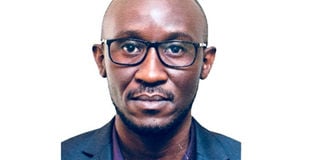Lessons from Kanyamunyu’s mato oput

Mathew Kanyamunyu, who is on trial for the alleged murder of Kenneth Akena, recently reached out to the deceased’s family to settle the matter using a traditional Acholi justice system called mato oput.
There was something cathartic in seeing a relatively rich and powerful Kanyamunyu kneeling before Akena’s kin and asking for forgiveness. Whereas Akena will not come back to life and Kanyamunyu may still serve significant time if found guilty by Uganda’s courts, the ritual fostered reconciliation in a community torn apart by Akena’s killing.
More importantly, the ritual showed that, in some ways, traditional justice systems are superior to the more adversarial ‘modern’ ones (e.g., in fostering reconciliation and social harmony).
So rather than copying and pasting foreign systems and completely discarding our own, we should develop a hybrid system that incorporates the best of both worlds.
That is, we should stop taking it for granted that foreign ideas are inherently superior to ours, and that they will always work for us. Instead, we should approach them as a buffet, selecting what works for us and ignoring what doesn’t.
For every choice, we must examine the underlying assumptions. When we use English, for example, is it because we need to reach a wider audience, or is it because we have contempt for local languages?
If it is contempt, are local languages inferior, or is it a fabrication of euro-centric propaganda? A critical analysis will reveal that local languages are richer in many aspects. It will also show that foreign languages and local languages are not opposites, in that loving one does not require demonising the other.
The same principle applies to other spheres of our lives, from naming systems to organising our families and marriages. The choices we make must be meaningful to us.
For instance, regarding landmarks, it is sensible to name a local electrical plant after Nikola Tesla because he played a significant role in discovering electricity. However, it is absurd to refer to Lake Mwitazinge as Albert because England’s Prince Albert means nothing to us, and we have nothing to thank him for. On the other hand, mwitazinge, which means the killer of locusts in Runyoro, is more meaningful since locusts (nzige) perish when they try to fly over that lake.
For personal names, let us abandon the idea that we need foreign names to become complete human beings or children of God. That idea is premised on the misguided notion that African is synonymous with less; that foreign gods and beliefs are good while African ones are evil.
For sure, African gods and foreign gods are not opposites. Foreign propagandists and accent forging pastors make it seem like African gods demanded us to do evil, but that is false.
On the contrary, African gods shunned evil and asked us to be fair. In other words, they are just as moral and well-meaning as imported gods. Why then do we perceive them as evil, and why do we demonise traditionalists?
In posing the above question, I am not asking us to abandon our imported gods (or anything foreign). Instead, I would like us to examine the source and validity of our negative opinions about everything African, from beliefs to customs and norms. It is high time we adopted an African-centric outlook and stopped blanketly believing other people’s opinions about us.
Let us unlearn looking down on ourselves and start placing value on our local knowledge and wisdom.
Mr Kibudde is a socio-political thinker
[email protected]
Twitter: @kkaboggoza




